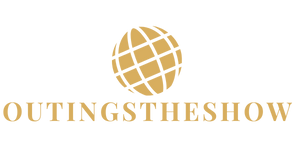Learning a new language can feel as daunting as climbing Mount Everest, especially when you can’t find your hiking boots. Fear not, intrepid learner. Language learning books are your trusty guides, lighting up the path toward fluency. Packed with practical tips, nuanced vocabulary, and sometimes even hilarious anecdotes, these books promise to make your language journey more enjoyable. So, grab a cozy blanket, a cup of tea, and let’s investigate into why language learning books are your new best friends (besides your actual friends, of course).
Table of Contents
ToggleWhy Use Language Learning Books?

Language learning books have been the go-to for ages, and for good reason. They provide a structured approach that online resources often lack. Imagine having all the grammar rules, idioms, and vocabulary neatly packaged in one volume, like having your cake and eating it too.
But why stop there? Language learning books offer more than just rules: they often include cultural context. Understanding how language fits into everyday life adds another layer to the learning experience. Besides, fiddling with paper pages is infinitely more satisfying than scrolling on a screen. Have you ever tried turning a page without feeling like a scholar? It’s downright exhilarating.
So, whether you’re hitting the books to brush up on Spanish for your next trip or embarking on a whole new adventure with Mandarin, language learning books are treasures worth unearthing.
Types of Language Learning Books
When it comes to language learning books, variety is the spice of life.
- Textbooks – They lay the foundation. These offer structured lessons focusing on grammar, vocabulary, and exercises. The format is often designed for classes, but it’s perfect for solo studies too.
- Phrasebooks – Got a trip coming up? Phrasebooks are your trusty sidekicks, equipping you with essential phrases and common expressions. Think of them as your fast pass to speaking like a local without wakeboarding through the linguistic waves.
- Workbooks – They emphasize practice. Filled with exercises and quizzes, workbooks help reinforce what you’re learning. Think gym sessions for your brain, but without the sweat.
- Grammar Books – If you’re a nitpicker (no, not the lice kind), grammar books dive deeper into the quirks and rules of a language. Perfect for those who enjoy dissecting and mastering every component.
- Literature – From classic novels to contemporary tales, this type broadens vocabulary through engaging narratives while sometimes offering cultural insights. After all, nothing says “I’m cultured” like quoting a famous author in their native tongue.
Each type has its strengths, catering to different learning styles and needs.
Top Language Learning Books for Beginners
If you’re just starting your language quest, here are some stellar book recommendations that won’t leave you lost in translation.
- “Fluent in 3 Months” by Benny Lewis – Imagine learning to speak a language in a quarter of a year. Lewis breaks it down simply, focusing on practical speaking skills. A must-read for anyone ready to jump into the linguistic pool.
- “The Everything Learning German Book” by Julie Gutin – This all-in-one guide is perfect for beginners wanting to learn the basics of the German language. It combines vocabulary, grammar, and cultural tips that will help in everyday conversation.
- “Easy French Step-by-Step” by Myrna Bell Rochester – Written to help beginners, this book introduces French grammar and vocabulary in a logical, simple manner. The step-by-step approach builds confidence.
- “Assimil Language Courses” – These are available for a myriad of languages and incorporate a unique method of gradual exposure to vocabulary and grammar. Think of it as language immersion in book form.
- “Practice Makes Perfect Series” – These workbooks focus on specific skills, from verb conjugations to conversation practice. They’re like having a personal tutor at your side, minus the awkward small talk.
Advanced Language Learning Books
For those who’ve weathered the beginner’s storm and are venturing into advanced territory, consider these options:
- “The Art of Language Invention” by David J. Peterson – Ever wanted to create your language? Peterson explores linguistics while teaching readers how to construct their own languages, a delightful challenge for advanced learners.
- “Schaum’s Outline of Spanish Grammar” by Cecilia W. Poole – This book provides detailed explanations of grammar concepts, supplemented by exercises that push your skills to the next level.
- “Fluent Forever” by Gabriel Wyner – This isn’t just a book: it’s a manifesto on efficient language learning. It teaches advanced techniques like spaced repetition and effective memorization strategies.
- “The Concise Chinese-English Dictionary for Lovers” by Xiaolu Guo – A beautifully written novel that can also serve as a language learning tool, perfectly straddling the lines between advanced vocabulary and cultural nuances.
- “Mastering German Vocabulary” by Bruce D. Smith – This resource dives deep into both common and less common vocabulary, making it ideal for learners looking to expand their lexicon.
How to Choose the Right Language Learning Book
Choosing the right language learning book can be more challenging than picking a favorite child (if you have multiple, that is). Here are some tips to guide your decision:
- Assess Your Level – Understanding where you stand in language proficiency is vital. Selecting a book that aligns with your level, be it beginner, intermediate, or advanced, will make your learning experience smoother.
- Define Your Goals – Are you learning for travel, work, or personal enrichment? Different goals call for different types of resources.
- Read Reviews – Scour the internet for reviews or recommendations. Platforms like Goodreads provide insights from fellow learners who can steer you toward the best resources.
- Sample Pages – If you can, flip through the book beforehand. This allows you to gauge the writing style, layout, and whether the content resonates with you.
- Seek Recommendations – Language forums and social media groups can be treasure troves for reliable recommendations. Don’t hesitate to ask those who’ve tread this path before you.
Integrating Books with Other Learning Resources
Books are just one piece of the language-learning puzzle. To shed light on this, consider integrating various resources for a more holistic approach:
- Apps – Language learning apps often complement books perfectly, featuring gamification that makes learning fun. Apps like Duolingo can reinforce what you’ve learned in your books.
- Podcasts – Listening to podcasts can enhance understanding, especially of pronunciation. Many podcasts are tailored to language learners and can provide real-life conversational practices.
- Online Courses – These can offer structured learning experiences with interactive components. Think of it as language boot camp, complete with a curriculum and expert guidance.
- Language Exchange – Speaking with native speakers through language exchange platforms can boost your confidence and conversational skills. It’s like having a real-life language lab.
- Movies and Music – Immerse yourself in the culture by enjoying media in the target language. It aids in comprehension and makes the learning process fun.
Mixing and matching these resources can cater to different aspects of learning, keeping it dynamic and engaging.




